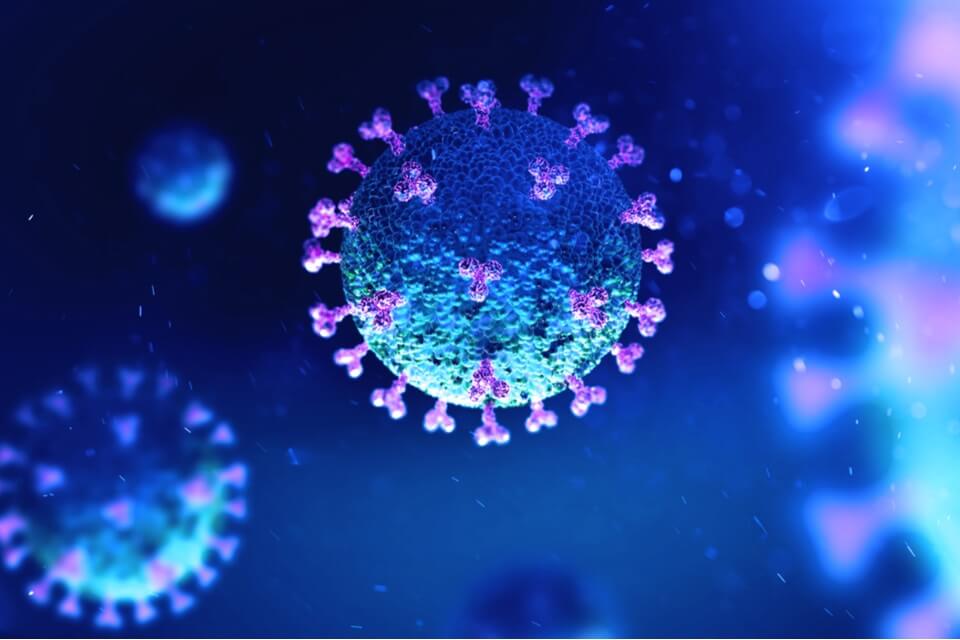New research confirms link between Covid-19, fatigue, and sleep problems

New research has found that people who have had Covid-19 have an increased risk of mental illness, fatigue, and sleep problems.
The research, published in The Journal of the American Medical Association Network Open, analysed the primary care healthcare records of 226,521 people from across the UK between February 2020 and December 2020.
The study found there was an almost six-fold increase in the likelihood of patients reporting fatigue to a GP following a positive PCR test and a threefold increase in the risk of sleep problems, compared to those without a positive PCR test, for people who haven’t previously visited their GP for any of these reasons in the past.
There was also an 83% increase in mental illness following a positive PCR test. However, there was also a 71% increase in the risk of mental illness for people who received a negative PCR test compared to the general population. The researchers say this casts some doubt about whether Covid-19 infection is directly causing mental health problems, because those who get a test are more likely to have risk factors for mental illness, such as pandemic-related anxieties.
The study, which was co-authored by Keele’s Professor Carolyn Chew-Graham, was funded by the National Institute for Health Research’s Greater Manchester Patient Safety Translational Research Centre (NIHR GM PSTRC), a partnership between the University of Manchester and the Northern Care Alliance NHS Foundation Trust.
Professor Chew-Graham, Professor of General Practice Research at Keele University who is also a GP, said: “It is vital that GPs recognise the long-term impact of Covid-19 infection on their patient population. Offering follow-ups to people who test positive for Covid-19 may help identify persisting symptoms, and sign-post people to the Your Covid Recovery website. The increased risk of developing mental health problems in people who tested negative may be due to health anxiety in these patients, and primary care has a role in identifying and supporting such patients.”
Dr Matthias Pierce, lead author from the University of Manchester, said: “When we began this research project, we wanted to investigate whether we could find any evidence in primary health care records that Covid-19 was linked to an increased risk of mental health illness, sleep and fatigue problems.
“While fatigue is clearly a consequence of Covid-19 the risk of experiencing sleep problems is also very high. However, we are sceptical regarding the extent that Covid-19 is directly causing people to develop mental health problems, or whether those with a predisposition to mental illness are more likely to get tested.”
Professor Roger Webb, from the University of Manchester, who co-leads the mental health research programme at the NIHR GM PSTRC, added: “Our findings align with those generated by investigations conducted in other countries in revealing elevated risks of mental illness, self-harm, fatigue, and disrupted sleep patterns among people testing positive for infection during the pandemic. Establishing the mechanisms that have caused these outcomes to occur is the next major challenge for researchers in our field.”
Most read
- Keele University partners with Telford College and NHS to teach new Nursing Associate apprenticeship in Shropshire
- Emotion aware chatbot developed by Keele scientists offers transformative potential for mental health care
- First study of its kind sheds new light on Britain’s ‘forgotten’ World War Two decoy sites
- Keele cardiologist travels to Ethiopia to improve care for heart patients
- Keele academic wins prestigious prize for short story set in Stoke-on-Trent
Contact us
Andy Cain,
Media Relations Manager
+44 1782 733857
Abby Swift,
Senior Communications Officer
+44 1782 734925
Adam Blakeman,
Press Officer
+44 7775 033274
Ashleigh Williams,
Senior Internal Communications Officer
Strategic Communications and Brand news@keele.ac.uk.

